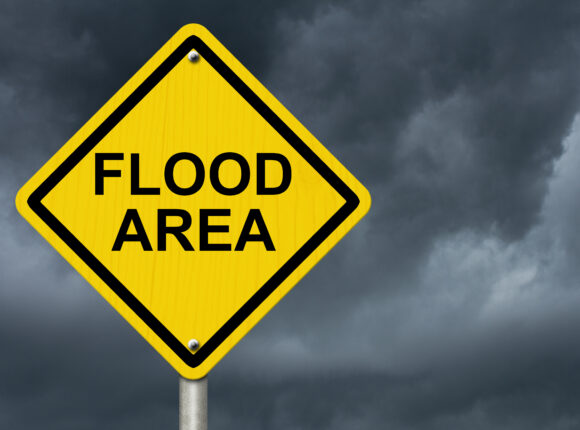New Jersey officials have introduced measures to implement flood risk disclosure legislation signed into law by Governor Phil Murphy last June.
The measures include new property disclosure forms notifying buyers and tenants of a property’s known flood history and potential flood risks, as well as an internet look-up tool searchable by mailing address that identifies properties in flood hazard areas.
Under the new law, sellers and landlords will be required to use the new forms beginning on March 20, 2024.
The Flood Risk Notification Tool, links to both disclosure forms, and information on how climate and flood risks are changing in New Jersey are available online on a flood disclosure web pages for the Division of Consumer Affairs and Department of Community Affairs
“As we continue to live with the impacts of climate change in our communities, it’s essential that we inform prospective homebuyers and renters of the risks in areas where they are looking to settle down,” said Governor Murphy. “These new protections will enable prospective home buyers and renters to stay a step ahead when it comes to finding the safest residence possible for themselves and their families.”
Prior to the adoption of New Jersey’s flood risk disclosure law, sellers and landlords were under no obligation to disclose a property’s flood history to potential buyers and tenants or inform them if the property was located in a Federal Emergency Management Agency (FEMA) flood hazard zone area. Now, they must make those disclosures prior to the signing of sales contracts, leases, and lease renewals.
The updated seller disclosure form requires sellers to answer questions focusing on a property’s flood history and potential flood risk. Questions include whether a property is located within the FEMA’s special flood hazard area (100-year floodplain) or moderate risk flood hazard area (500-year floodplain); whether the property has experienced flood damage or pooled water due to heavy rainfall or other natural flood event; and if the property is subject to any requirement under federal law to obtain and maintain flood insurance.
Also, the Department of Community Affairs has posted a model notice to be used by landlords to inform their tenants of the flood risk of rental properties. Landlords must notify tenants in writing of the flood risk prior to lease signing or lease renewal.
The Flood Risk Notification Tool enables users to search properties by mailing address to identify whether the property overlaps with the FEMA special or moderate flood hazard areas. The report includes the property’s FEMA flood zone information to satisfy the new disclosure requirements as well as a description of what FEMA flood zones mean and how they are determined.
Topics Flood New Jersey
Was this article valuable?
Here are more articles you may enjoy.



 BMW Recalls Hundreds of Thousands of Cars Over Fire Risk
BMW Recalls Hundreds of Thousands of Cars Over Fire Risk  Trump Demands $1 Billion From Harvard as Prolonged Standoff Appears to Deepen
Trump Demands $1 Billion From Harvard as Prolonged Standoff Appears to Deepen  Insurify Starts App With ChatGPT to Allow Consumers to Shop for Insurance
Insurify Starts App With ChatGPT to Allow Consumers to Shop for Insurance  What Analysts Are Saying About the 2026 P/C Insurance Market
What Analysts Are Saying About the 2026 P/C Insurance Market 

